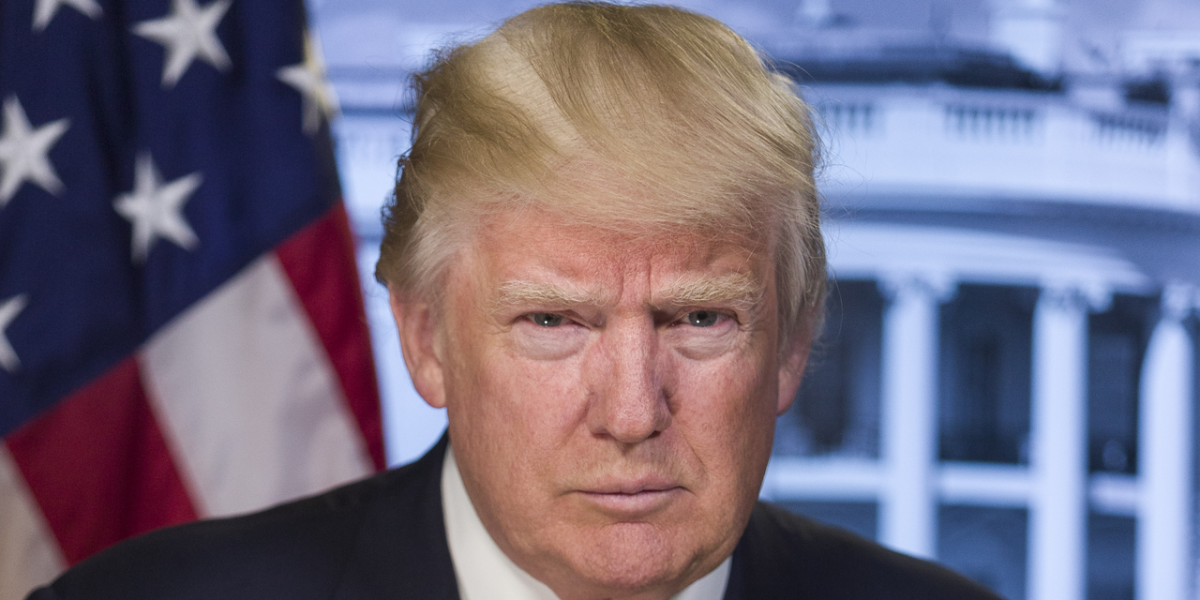May 11, 2017
By Steven R. Goldzwig, Ph.D.
“Counterfactual Advocacy” is a discourse designed to deny, evade, or misdirect its audiences from facts, inferences, or descriptions of events that might provide the kind of transparency we need in a democratic society to make the best assessment of and useful decisions about our present reality. In a political environment, counterfactual advocacy taints and disrupts public policy processes and products. While this definition is formative rather than definitive, the formulation provides a baseline for interpreting our present circumstances.
Counterfactual advocacy has now seemingly led to a counterfactual advocacy industry. Its leader and chief spokesperson is Donald J. Trump. Assisted by the rise of what has been labeled the alt-right, the 2016 presidential election campaign unleashed a number of ethical dilemmas that promise to challenge our new president and our national will. Trump has become a lightning rod and a platform for several unsavory developments, including but not limited to instances of rampant misogyny, racism, chauvinism, anti-Semitism, and xenophobia.
Given these alarming developments, I want to interrogate the ongoing deleterious effects of a present brand of public discourse – a discourse that threatens the realization of a more perfect union, savages the commonweal, and tears at the fabric of the republic. I want to touch upon four key themes: 1.) the assault on truth and expertise; 2.) Trump’s demagoguery; 3.) Trump’s version of populism; and 4.) why words matter.

The Assault on Truth
The assault on truth did not begin with Trump, but it arrives in an atmosphere and environment conducive to the alternative reality that has been the subject of much commentary and no little worry. Fernbach and Sloman (2017) suggest that while “individual ignorance” is often our “natural state,” that same ignorance can “prompt us to demand expertise and nuanced analysis from our leaders, which is the only tried and true way to make policy.” Yet, thus far with the Trump administration, policy does not seem to derive from the painstaking prior analysis and the application of expertise that make outcomes predictable. In fact, as we all know, expertise is questioned at every turn – think climate change and global warming, think deregulation of the administrative state
Tom Nichols (2017) argues compellingly that the death of expertise is partially, but not insignificantly, due to a growing narcissism that has led to less belief in the value of expertise. Random “facts” washing over us as we engage in dozens and dozens of mouse clicks do not necessarily make us experts; in fact, after such exposure, we might even find ourselves in an inferior intellectual position – but wholly unaware of our deficit. The result is that reasoned, evidenced-based argument as a defining ingredient in our democracy is slowly disappearing. When we add in a seemingly narcissistic president with a penchant for demagoguery, we exacerbate this growing problem.
Trump’s McCarthyism
Joe McCarthy’s rhetorical methods certainly parallel Trump’s. One might consult Barnet Baskerville’s (1954) classic article on Joseph McCarthy to find resonance. In classic demagogic fashion, Trump, like McCarthy, has employed untruths and distortion with abandon. Like McCarthy, Trump seems to believe that “dramatic lies are more attractive than prosaic truth.” Like McCarthy, Trump has shown an “indifference to ideas” and a “lack of interest in democratic processes by means of which ideas are examined, tested, and modified.” Like McCarthy, Trump has displayed “an imperious refusal to listen to replies to his accusations,” and this is “matched by an equally imperious refusal to reply rationally to charges made against him.” Like McCarthy, Trump “hits and he runs; he makes reckless assertions which he cannot prove.”
Despotic Populism
At this writing, one pines for one iota of public interest – or even a scintilla of old-fashioned shame – in place of Trump’s dogged continuance of the grandiose lifestyle he adopted before taking office. If this lifestyle reflects a populist agenda, I am hard-pressed to find it.
The idea of a billionaire populist summons an eerie, oxymoronic ring. Trump’s economic nationalism, disguised rhetorically as a populist movement, is belied by a truckload of evidence, including the fact that he chose a number of plutocrats to head his cabinet posts, in some cases charging them with dismantling or definitively delegitimating the traditional powers and regulatory statutes that defined, enforced, and protected their missions. The alleged goal: the deconstruction of the administrative state. I find a thoroughly despotic thread in that type of “populism.” As Marc Fisher (2017) notes, “Trump has managed to blend left-wing populism, which tends to target Wall Street billionaires and corporate leaders as oppressors of the working class, with right-wing populism, which generally targets civil servants, intellectuals, the media, and racial minorities and immigrants.” Rhetorically, then, Trump’s populism is an odd hybrid; such a discourse reflects both the left and the right. It can hardly be seen in terms of traditional Republican philosophical and political principles – and still less in terms of traditional Republican discourse.
Today, we are simultaneously experiencing a rise in authoritarianism as well as an unparalleled surfacing of incompetence. In my view, despotic populism displays the classic signatures of authoritarian regimes in which rule is accomplished by demagogic practices and preferred governance reflects a penchant for dictatorial rule. Trump’s rhetorical forays display a narcissistic authoritarianism that skirts democratic values and practices. His mercurial self-centeredness brooks few critics.
Words Matter
Rhetoric and public policy are hampered by a perfidious shortsighted assumption that what anybody says, regardless of truth or accuracy, is merely a part of the “new normal” in public discourse. This is an assumption with devastating consequences. If all claims are equal, and their supporting evidence either unexamined or summarily and arrogantly ignored, we flatten the lifeblood of the human heart and pose significant obstacles to human action on behalf of social change. We each have a stake in trying to turn back this gathering storm. In that endeavor, words matter. As NCA President Stephen Hartnett (2017) recently observed, we must “proceed with the understanding that communication both reflects objective conditions and shapes them.” This belief challenges us to “cherish the importance of ethical, evidence-based, careful speech that is linked to slow, deliberate, and responsive listening.” Here lay the seeds of intervention.
Excerpted from a paper presented at the biennial 2017 Nieman Conference: “Discerning the Truth in the 2016 Presidential Election,” Monday March 27, 2017, Alumni Memorial Union, Marquette University.
References
- Baskerville, Barnet. Joe McCarthy, Brief-Case Demagogue. Today’s Speech Vol. 2, Issue 3, 1954, pp. 8-15; quotations, pp. 8, 11, 12.
- Fernbach, Phillip & Sloman, Steven. Why We Believe Obvious Untruths. The New York Times, Sunday Review, March 5, 2017, p. 11.
- Fisher, Marc. The Political Lexicon of a Billionaire Populist. Washington Post.com, March 9 2017 at 7:21 PM. Accessed March 9, 2017.
- Hartnett, Stephen J. Putting NCA’s Civic Callings into Action: Research, Teaching, and Service for the Common Good. Spectra, Vol. 53/1, March 2017, pp. 2-3; quotations, p. 3.
- Nichols, Tom. The Death of Expertise: The Campaign against Established Knowledge and why it Matters. New York: Oxford University Press, 2017, esp. p. xi and p. x.
Online Resources
- american.edu/spa/ccps/index.cfm
- millercenter.org/presidents
- state.gov
- presidency.ucsb.edu
- whitehouse.gov
- wilsoncenter.org
Media Resource: Issue Experts
- Denise M. Bostdorff, The College of Wooster
- Martin J. Medhurst, Baylor University
- Robert Rowland, University of Kansas
- Mary E. Stuckey, Georgia State University









